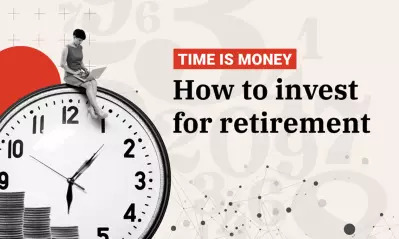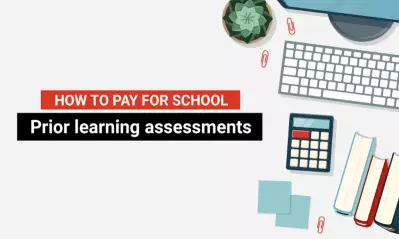What is a student loan and how does it work?

Written byВ Cassidy Horton

Reviewed byВ Chris Conway,В Director of Financial Education Initiatives and Repayment Management

If youвҖҷre planning to attend college, you might be considering student loans to help cover theВ cost of tuition, books and other expenses. But what exactly is a student loan, and how do loan payments work? Here, weвҖҷll take a closer look at this common way to pay for school.
What is a student loan?
A student loan is aВ type of financial aidВ available toВ U.S. citizens, permanent residents or eligible noncitizens that isВ designed to help pay for education expenses. This includes books, tuition, fees, and room and board.
TheВ federal governmentВ orВ private lenders can issue student loans, which typically have to be paid back with interest over a certain period of time.
Types of student loans
There are two main types of student loans: federal student loans and private student loans.
Federal student loans
Federal student loans are offered by the U.S. Department of Education and haveВ fixed interest rates, flexible repayment options and various forgiveness programs. Federal student loans are typically more affordable than private student loans.
Some common federal student loans are:
- Direct Subsidized Loans
- Direct Unsubsidized Loans
- Direct PLUS Loans
Each type has its own eligibility requirements, interest rates and repayment terms. Income and credit history can factor into the types of loans and interest rates available to a borrower. You can learn more about federal loans by visiting theВ .
Private student loans
Some students might explore private student loans to cover the cost of their education. Banks and credit unions primarily offer private student loans. These loans typically haveВ higher interest ratesВ than federal student loans, and repayment terms may be less flexible.
How does a student loan work?
When borrowers take out a student loan, theyвҖҷre borrowing money to pay for their education. The loan amount is based on factors such as financial need, cost of attendance, half-time or full-time enrollment, the degree being pursued and more. The total cost of the loan is typically paid back through monthly payments over a period of years, with interest. Here is a brief overview of how student loans work:
Loan application process
To apply for a federal student loan, you need to fill out theВ В (FAFSAВ®). This form determines your eligibility for federal student loans, grants and work-study programs.
Private lenders may have their own application process, which typically involves a check of yourВ creditВ historyВ and may require a co-signer.
Interest rates
For federal student loans, a borrowerвҖҷs interest rate depends on theВ loan type, when it was disbursed and theВ borrower typeВ (undergraduate, graduate or professional).
For example, the interest rate for an undergraduate Direct Subsidized Loan is 4.99% and for a professional Direct PLUS loan is 7.54%. These rates are for loans issued between July 1, 2022, and June 30, 2023.
Private lenders may offer fixed or variable interest rates, which can change over time. Private loans are credit-based, which means that a borrowerвҖҷs credit score, income and financial need can play a role in theВ availableВ interest rates.В
Repayment plans
Borrowers will start repaying federal student loans after they graduate or drop below half-time enrollment. They receive aВ repayment plan scheduleВ from their loan servicer that outlines their monthly payments under the standard repayment plan, the due date, the grace period and the length of the repayment period.
Several types of repayment plans are available, including:
- Standard repayment:В Fixed monthly payments over 10 years.
- Graduated repayment: Loan payments start low and increase every two years over 10 to 30 years.
- Extended repayment:В Stretches payments out over a period of up to 25 years.
- Income-driven repayment:В Based on income and family size, with forgiveness after 20 to 25 years.
Student loan debt forgiveness and cancellation
Loan forgiveness is a program where federal student loan borrowers can have some or all of theirВ student loan debt forgiven. Private student loans usually donвҖҷt have loan forgiveness options.
Federal student loans offer various student loan debt forgiveness programs, such asВ Public Service Loan Forgiveness,В Teacher Loan ForgivenessВ andВ Perkins Loan Cancellation for Teachers, which require meeting specific criteria like working in a particular profession or making a certain number of payments.
How to apply for student loans
Before you apply for student loans, you should explore other types of financial aid that donвҖҷt need to be repaid, includingВ grants and scholarships. If you still need financial assistance after exploring these options, then you might decide to apply for a student loan.
Here are the steps to take:
1. Fill out the FAFSA
The first step in applying for any type of financial aid, including federal student loans, is toВ . You can also use theВ В to calculate which types of federal aid you may be eligible for.
2. Compare your loan options
After receiving yourВ financial aid award letter, youвҖҷll see the types of loans youвҖҷre eligible for. Make sure toВ compare the interest rates, fees and repayment termsВ of each loan before making a decision. You can also use loan calculators to estimate your monthly payments and total repayment amount.
3. Complete the loan application
After deciding on a loan, youвҖҷll need to complete the loan application. This will include providing personal and financial information, as well as information about your school and program of study. You may also need to provide documentation such asВ tax returns or proof of enrollment.
4. Sign the promissory note
After your loan application is approved, youвҖҷll sign a promissory note. This legal documentВ outlines the terms and conditionsВ of your loan, including the interest rate, repayment schedule and any fees or penalties. You may also need to complete entrance counseling, which will introduce you to many of the terms in the promissory note. Make sure to read this document carefully and ask any questions before signing.
5. Receive your funds
Finally, your loan funds will be disbursed to your school. For most student loans, you receive at leastВ two disbursementsВ throughout the year. Keep track of how much youвҖҷre borrowing and how much youвҖҷll need to repay so that you canВ make informed decisions about your finances.
Bottom line
There are manyВ ways to pay for college. Taking out a student loan is a serious financial commitment, and you shouldВ only borrow what you needВ and can afford to repay. Always read the fine print and ask questions before you sign on the dotted line. As mentioned, always explore other types of financial aid that donвҖҷt need to be repaid, including grants and scholarships. That way, you reduce the amount youвҖҷll need to repay after you graduate.

ABOUT THE AUTHOR
Cassidy Horton is an academic advisor turned finance writer whoвҖҷs passionate about helping people find financial freedom. With an MBA and a bachelorвҖҷs in public relations, sheвҖҷs had the pleasure of working with top finance brands like Forbes Advisor and PayPal. SheвҖҷs also the founder of Money Hungry Freelancers, a platform dedicated to helping freelancers ditch their financial stress. In her spare time, you can find Horton hiking in the Pacific Northwest and cuddling her two cats.

ABOUT THE REVIEWER
As Director of Financial Education Initiatives and Repayment Management,В Chris Conway works with departments across the University to provide resources that allow students to make more informed financial decisions. She is also an adjunct faculty member for the Everyday Finance and Economics course at the University, and she chairs the National Council of Higher Education Resources College Access and Success Committee. Conway is committed to helping college students make the right financial decisions that prevent future collection activity.
This article has been vetted by °ДГЕМмМмІКҝӘҪұјЗВј's editorial advisory committee.В
Read more about our editorial process.
Read more articles like this:


